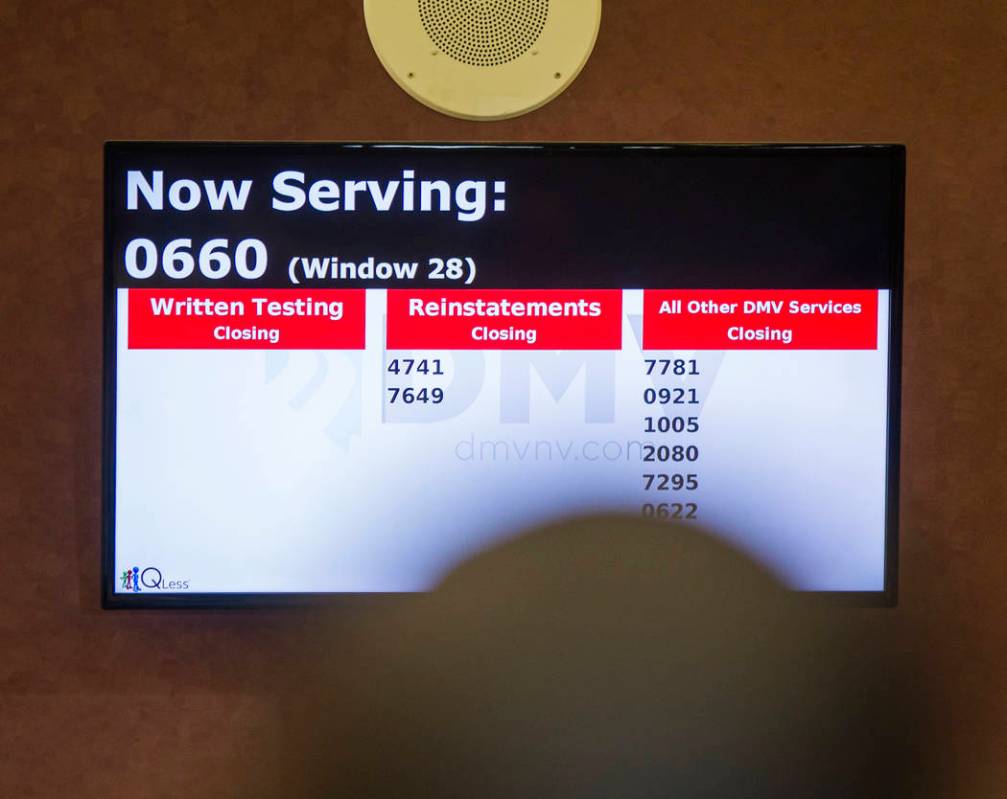EDITORIAL: DMV computer fiasco continues to emit a rotten stench

The Nevada DMV’s multimillion-dollar computer fiasco represents an unraveling tale of incompetence and perhaps corruption. But the fact that aspects of the controversy played out in secret judicial filings is an affront to justice and highlights why this mess deserves heightened scrutiny.
State taxpayers got whacked for $25 million when the DMV’s 2016 computer upgrade proved an utter failure. A 2018 autopsy by an outside firm determined the company that won the $75 million contract, Tech Mahindra, used an “unproven” technology and had “nonexistent” management controls.
The Review-Journal reported in May that Troy Dillard, former DMV executive director, left the agency to take a job with Tech Mahindra as the deal was being finalized.
And like the lines at the DMV, the stench wafting from this debacle won’t subside. On Saturday, the RJ’s Arthur Kane reported that a lawsuit alleging criminal activity connected to the project had been settled and hidden from the public by a Carson City District Court judge at the behest of participants.
Mr. Kane revealed that former Tech Mahindra executive Brian Coffey sued the company in 2017, alleging he was fired for blocking kickbacks to state employees who were on the board that awarded the computer contract.
Mr. Coffey settled the lawsuit last year and his attorney asked District Judge James T. Russell to seal the case, arguing “public interest in this matter is low.”
Well … no. It’s true the state was not involved in the litigation. But, at the very least, Mr. Coffey used the legal system to pressure his former employer. In addition, a case involving allegations of public corruption involving millions of dollars is, by definition, in the “public interest.”
Yes, unfounded or exaggerated accusations are made in civil litigation. Those accused deserve the right to defend themselves. For their part, Tech Mahindra attorneys maintained Mr. Coffey’s claims lacked “all merit” and pointed to the fact that then-Attorney General Adam Laxalt was aware of the lawsuit but didn’t pursue the issue.
Mr. Laxalt, now in private practice, told Mr. Kane the decision not to intervene was made “by career prosecutors and civil attorneys” in consultation with then-Gov. Brian Sandoval and the DMV. Does that mean there was an investigation? If so, taxpayers have a right to see the results, particularly given some of those named in the alleged bribery scheme still work for the state. If there was no probe, why not?
In addition, the state Supreme Court should look into how Judge Russell sealed the case in apparent violation of rules demanding such orders be available for “public viewing.” Judicial secrecy undermines accountability and democracy.
Nevada taxpayers lost millions on the botched DMV computer upgrade. With hints of wrongdoing now surfacing, they deserve a more detailed account of what occurred.